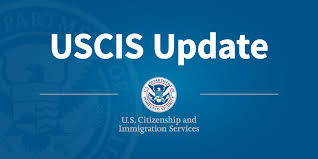Learn More About:
Immigration News & Updates eNewsletter © 2011 - 2021
For questions about U.S. Residency, Green Cards and Immigration Visas, Visit our Website at: www.ImmigrateToday.com or call our office at: (954) 382-5378
Check Out This Cool Stuff For Immigrants....
Immigration
Questions & Answers
This Week's Immigration News
Immigration News & Updates
Immigration How To:
How Do I Prepare For My Swearing In Ceremony?
Questions About Immigration? We have the answers!
We Are Here To Help, Call us now for a FREE consultation (954) 382-5378
Biden Revokes Trump’s Health Care
Insurance Requirements for Immigrants
AMERICAN IMMIGRATION
LAW CENTERS
Immigration Questions: (954) 382-5378
POSTING DATE: May 24, 2021
Question:I am a resident and I filed for my 23 year old son last year. I just received the immigration approval notice and want to know what the next step is in his process. Will he be able to come here now on his visitor visa and stay? How long will it take for him to get his green card?
American Immigration
Law Center
2645 Executive Park Drive
Suite 137
Weston, Florida 33331
On May 14, 2021, President Biden issued a Presidential Proclamation revoking Trump’s previous Proclamation requiring immigrants to provide proof of health insurance before being allowed to immigrate. Under the previous administration, immigrants were required to prove they would obtain qualifying health insurance within 30 days of entering the U.S. or that they had the financial resources to cover medical expenses.
In signing the new directive, Biden continues on the course of systematically reversing most of the Trump era anti- immigration policies, instead calling for a “fair and humane” immigration system.
Helpful Immigration Tips You Can Use...
Tips On Paying Your USCIS Application Fees With A Credit Card
The USCIS allows most Immigration application fees to be paid using a credit card. To use the payment by credit card service, applicants must download and complete form G-1450, then place the completed and signed form on the top of the application to be paid by credit card. Visa, MasterCard, American Express, Discover and prepaid cards are all accepted.
However, note that and a credit card payment cannot be combined with a check or money order to make the required USCIS filing fee on one application.
Answer: That’s a good question and very confusing to many. The immigration process for family members is broken up into two parts, first, the USCIS processes and approves the case and second, the National Visa Center handles final consular processing so that a family member abroad can immigrate to the U.S..
The first part of the process which requires USCIS approval takes one or more years for some visa categories like: F1 adult single children of citizens, F2A spouses and minor children of U.S. residents and F2B, adult single children of U.S. residents. While others like F3, adult married children of U.S. citizens and F4, siblings of U.S. citizens can take up to 10 years.
Once the USCIS processing has taken place and the case is approved, the second part handled by the National Visa Center (NVC) involves waiting for an immigrant visa to be available, that is usually the part that takes the longest. Certain type cases like F2A spouses and minor children of U.S. residents do not need to wait for a visa, since there are currently immigrant visas available, so these family members only need to wait for regular NVC and consular processing which is currently taking an unusually long time due to covid-19 delays, while in the past it was only a few months. Other cases like the F1 adult single children of citizens takes about six (6) years, and F2B, adult single children of U.S. residents takes about five (5) years. The longest waiting line for visas are for F3, adult married children of U.S. citizens, which takes about twelve (12) years and F4, siblings of U.S. citizens can take up to ten (10) years.
So, your son’s I-130 family petition approval is just the first step in the process. Now that it has been approved, the USCIS will send his file to the NVC for processing. Since he is in the F2B category, the NVC will essentially put his case on the shelf for the next four years or so, then notify you when it is time for consular processing to begin. The monthly Visa Bulletin released by the State Department every month gives updates on the waiting times in each category. So when the F2B category hits or exceeds the date you filed the I-130 for your son, his priority date has become current and there is an immigrant visa available to allow him to able to immigrate to the U.S. Until that time, just be sure to keep the NVC updated on your address. If you have any questions, you can visit the NVC website or call them at: (603) 334-0700. Until then, your son is not allowed to come and live in the U.S., unless he is on another legal visa, like an F-1 student visa, etc.
Once your Application for Naturalization is approved, the USCIS puts your case in the queue to be scheduled for your Oath of Allegiance which takes place at your naturalization ceremony. This taking of your Oath of Allegiance complete the process of becoming a U.S. citizen.
Understanding the types of Oath Ceremonies:
There are two kinds of Oath of Allegiance ceremonies, one, is a judicial ceremony, where the court administers the Oath of Allegiance for Residents who have requested a name change and the regular administrative ceremony, during which the USCIS administers the Oath of Allegiance.
USCIS Begins Rescheduling Biometric
Services Appointments by Phone
The USCIS issued a policy update recently, confirming that it would no longer reject immigration application forms which contain blank responses. This had been the existing policy until October 2019, when Trump’s USCIS officials began rejecting Form I-589, Form I-612 or Form I-918 if an applicant left a space blank.
USCIS has now reverted back to the rejection criteria that existed before the October 2019 change.
New Policy Eliminates USCIS “Blank Space” Criteria
The USCIS recently announced that that immigrants may now call the USCIS Contact Center (800-375-5283) to make a request to reschedule their biometric services appointments at a USCIS Application Support Center. Previously, the USCIS only accepted written requests mailed to the Alexandria, Virginia ASC. Immigrants seeking to reschedule previously scheduled appointments must call before the scheduled date and provide a good excuse, such as being sick or being out of town.
This new policy however, does not allow immigrants who are waiting to be scheduled for biometrics to be issued initial appointments.
Read the USCIS News Alert
Question: My husband and I got married in 2019 and since he was finishing out his work contract in order to get his retirement, so we decided that it was better for him if he immigrated through the embassy. We filed his case and have been waiting all this time for him to be able to immigrate. He has completed his employment and is ready to make the permanent move to be with me in Florida. But his case is still pending and we have not heard anything from the embassy about when his interview is going to be scheduled. In the meantime, he comes up to see me every few months and I go down to see him, but the situation is getting tedious. He is with me here now and getting ready to go back down after the memorial day weekend. My question is whether we can expedite his case so he can get his interview at the consulate in the next few months, or even whether we can restart the whole case here and whether it would be quicker? Thanks for your thoughts.
Question: My daughter is 12 and got her appointment at the embassy last year and even had her medical exam done. Then it got cancelled due to covid and we have been waiting for it to be rescheduled ever since. I am a green card holder and thought that since she is a minor, they would reschedule it soon. But we have been waiting. When I call the national visa office to find out when she will get the new interview date they say she does not have priority because I am not a citizen and only children of citizens are getting interviews now. My question is whether that is true?
Answer: Unfortunately, due to the massive backlog of consular cases, the State Department is not currently able to reschedule all consular appointments which were cancelled last year due to the pandemic. As a result, it has prioritized how and when visa interviews will be scheduled, according to a four Tier system. Tier One: Immediate relative inter-country adoption visas, age-out visa applicants who will soon no longer be eligible due to age, and special immigrant visas for Afghan and Iraqi nationals working with the U.S. government. Tier Two: Immediate relatives of U.S. citizen visas (spouses, parents and minor children of U.S. citizens), fiancé/e visas, and returning resident visas (for residents who have stayed outside the U.S. for a year or more).Tier Three: Family preference immigrant visas (F1 adult single children of citizens, F2A spouses and minor children of U.S. residents, F2B, adult single children of U.S. residents, F3, adult married children of U.S. citizens, and F4, siblings of U.S. citizens). Tier Four: All other immigrant visas, including employment preferences and diversity visas. Since you are a U.S. resident (green card holder), your daughter is in the family preference F2A category, which is Tier Three. Due to this prioritization system, it will take quite a while for your daughter’s interview to be rescheduled. The backlog should begin to clear out by next year and consular operations should normalize in most countries and begin regular scheduling operations. For now, you just need to wait.
This comes on the heels of Biden’s revocation of Trump’s "public charge" rule earlier this year, which had allowed Trump administration officials to deny residency to legal immigrants who were deemed to receive public benefits in the future or had done so in the past (i.e. Medicaid or food stamps).
Going forward, the USCIS will no longer reject any form for the sole reason that an applicant leaves a blank space. However, the USCIS cautions applicants that it may still reject forms if required data is left blank, or if the applicant fails to answer questions which determine eligibility or if required initial evidence is not submitted which demonstrates eligibility.
Read the USCIS Announcement
Answer: I understand your frustration! Unfortunately, due to the large backlogs in consular processing, there is no way to expedite your husband’s case and get his interview scheduled at the U.S. consulate abroad. However, since he is here and able to stay, we can file for his residency and he can legally stay in the U.S. and go through the residency process here, rather than abroad. But due to the pandemic, the process is rather slow in the U.S. as well, but at least you will be together. Once his case is filed it now takes about 4 weeks to receive the USCIS receipts, then another several months for his biometrics appointment to be scheduled when he has his fingerprints and digital photos taken. From the time of filing it is taking six months or more to receive the work and travel permit and another six month or more for the residency interview. Let me know when you are ready to get started!
So what’s going to happen at your naturalization ceremony?
1. Receive Your Naturalization Ceremony Notice to Take the Oath of Allegiance
While some Immigrants who request it may be able to participate in a naturalization ceremony on the same day as their naturalization interview, many Residents must wait for the USCIS mail them a notice with the date, time, and location of their scheduled naturalization ceremony, called a Notice of Naturalization Oath Ceremony (Form – N-445). Those who cannot attend the scheduled naturalization ceremony must return the notice to their local USCIS office, along with a letter requesting a new date and explaining why they are not able to attend the scheduled naturalization ceremony. Residents who fail to show up for their naturalization ceremony without having requested a rescheduling may receive a denial of their naturalization case.
2. Complete Form N-445, Notice of Naturalization Oath Ceremony before checking in at the Ceremony
Residents should complete Form N-445, Notice of Naturalization Oath Ceremony before arriving at the ceremony, prior to check in with USCIS. During check-in, a USCIS officer will review your responses to the questionnaire.
3. Surrender of your Permanent Resident Card (Green Card)
Residents who are becoming U.S. Citizens must surrender their Permanent Resident Cards to the USCIS at the time they check- in for the naturalization ceremony. Those who have lost their cards can receive a waiver.
4. Taking the Oath of Allegiance to the United States
A Resident is not a U.S. citizen until he/she takes the Oath of Allegiance to the United States during the naturalization ceremony. After the Oath, new U.S Citizens receive their Certificate of Naturalization.
5. Notes about the Certificate of Naturalization
New U.S Citizens should carefully review the Certificate of Naturalization for accuracy while still at the ceremony. Any inaccuracies must be brought to the attention of the USCIS before leaving the ceremony. Unless or until you apply for your U.S. Passport, your Certificate of Naturalization is your official proof of your U.S. Citizenship. Those who lose their Certificate of Naturalization must request a replacement by filing Form N-565, Application for Replacement Naturalization/Citizenship Document and paying the $555 USCIS filing fee. The waiting time for a replacement can be lengthy.
downloading the form.
6. Time to apply for Your U.S. Passport
Once you receive your Certificate of Naturalization, you can immediately apply for a U.S. passport. You will receive an application for a U.S. passport at your naturalization ceremony, called the “U.S. Citizenship Welcome Packet” or you can go online to the U.S. Passport office
7. Time to Register to Vote!
Now that you are a U.S. Citizen, it is your right and privilege to vote. You can register to vote at certain locations in your community, which may include post offices, motor vehicle offices, county boards of election, and offices of your state Secretary of State. You can read more about registering to vote by reading the government publication: “A Voter’s Guide to Federal Elections."
8. Final Step: Update your Social Security Record
After you become a U.S. Citizen, you will need to notify the Social Security Administration (SSA) to update your Social Security record. You can find your local Social Security office by calling 1-800-772-1213 or by visiting: www.socialsecurity.gov. You can go to your local SSA office about ten days after your ceremony to give time for the SSA to be able to access your new status in the USCIS records. Be sure to take your Certificate of Naturalization or U.S. passport with you. Good luck!
For instance, if the Naturalization application filing fee of $725 is to be paid using a credit card, the payment cannot be broken up between a combination of a credit card and a check. The entire payment must be made by either credit card or check.
Also, USCIS filing fees and biometrics fee for each form can be paid together on one form. For instance form I-90, Application to Replace Permanent Resident Card, the filing fee is $ 455 and the Biometrics fee is $85, so the entire USCIS filing fee of $540 if paid by credit card, can be paid using the same form G-1450. For Immigration cases which contain multiple applications with separate filing fees, a separate Form G-1450 should be used for each application requiring a separate USCIS filing fee.
Before sending your Immigration application with a credit card payment, be sure to make certain that you have enough credit left on your account to cover the payment, otherwise, the USCIS will reject your application.













